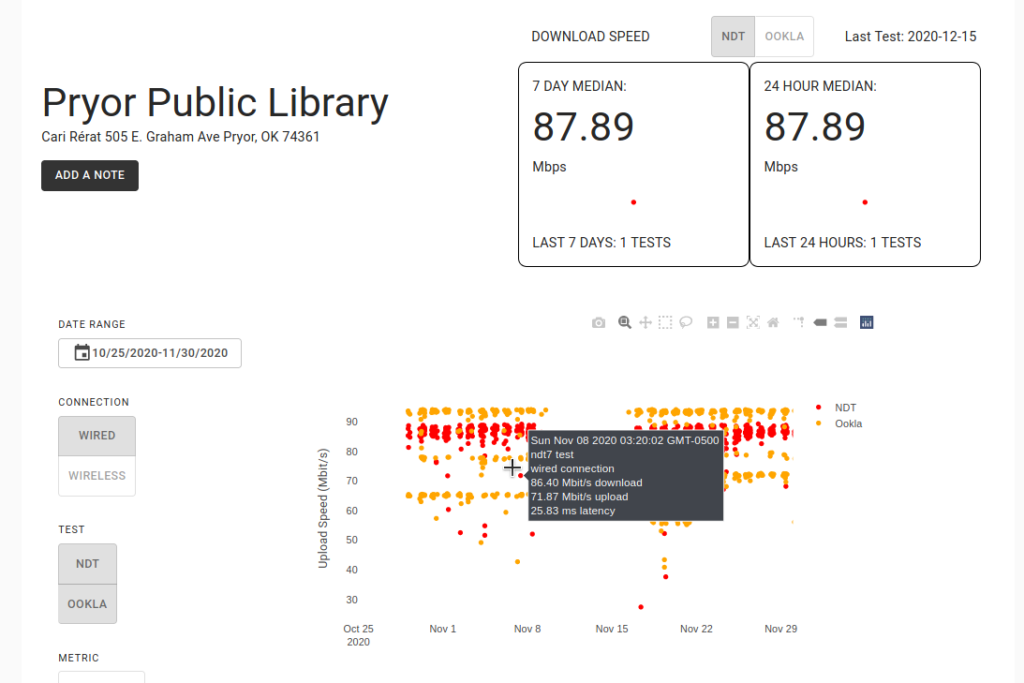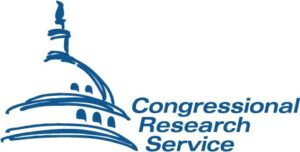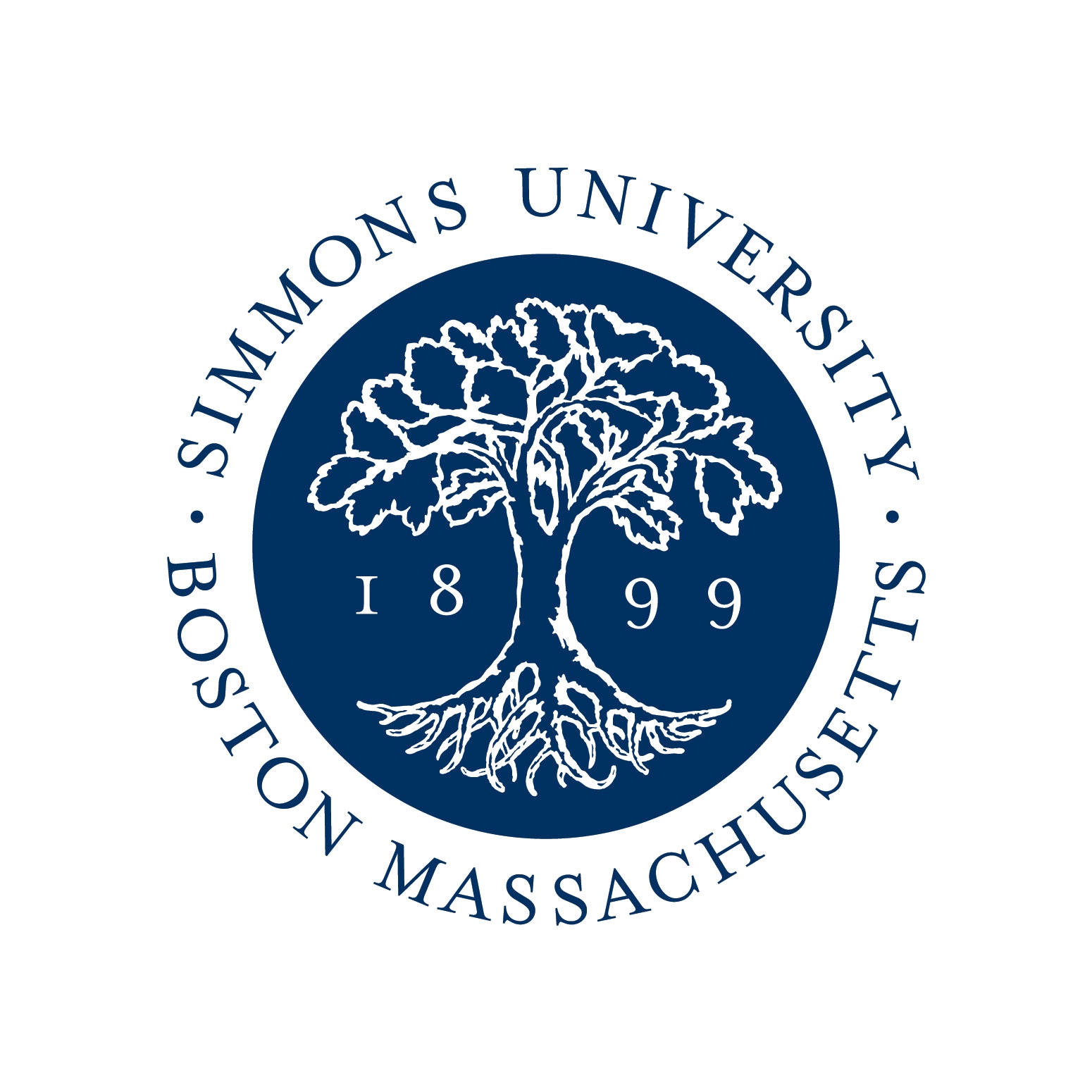
After two and a half years, I am incredibly excited to announce that we have successfully launched our broadband measurement system with and for public libraries across the U.S.!
Thanks to a grant (award #LG-71-18-0110-18) from the U.S. Institute for Museum and Library Services, and in partnership with Measurement Lab (M-Lab) and Internet2, our Measuring Library Broadband Networks (MLBN) research initiative has launched our open source broadband measurement system that public libraries can use to measure the speeds and quality of service of their broadband internet connections.
Here is a snippet from our new blog post, written by Chris Ritzo (M-Lab) announcing our broadband measurement system:
As we close out the calendar year, we’re focused on that future where we can measure and understand broadband access and quality using a variety of measurement tools. We’ve invited our participating libraries to review their test data in Murakami-Viz, and look forward to their feedback on it and our program in general in the coming year. M-Lab is continuing to develop Murakami as a tool that enables structured data collection using our platform, as well as using other measurement initiatives and tests.
We believe this announcement is timely given this week’s press release from the U.S. Senate announcing provisions for broadband in the Bipartisan COVID-19 Emergency Relief Act of 2020 with emergency assistance for community anchor institutions and connectivity.
For public libraries interested in gathering real-time and longitudinal data on the speeds and quality of service of their broadband internet connections, please visit our project website to learn more about how communities can participate in this open source broadband measurement initiative.
On behalf of our MLBN team, I want to thank our partners, including the many public libraries from across the country that offered their time and insights to help inform the development and implementation of our project.
Stay tuned for more project updates and our final evaluation on our MLBN project website.


 Here is the
Here is the